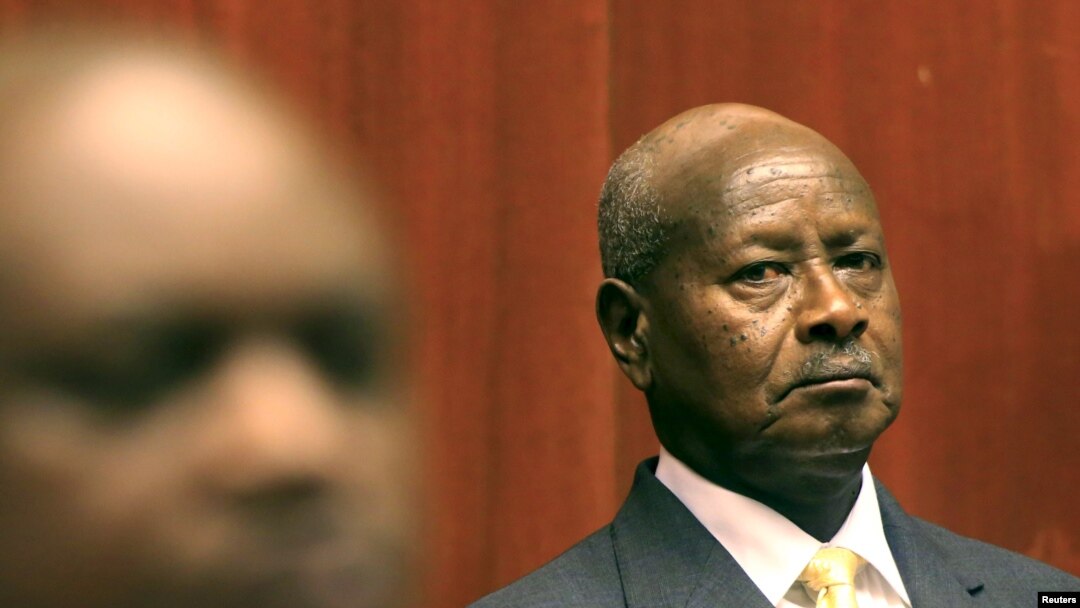In Uganda, an alleged government critic on social media has been jailed. Robert Shaka is charged with “offensive communication.” The government alleges that Shaka, an information and security analyst, violated the Computer Use Act by posting statements about the president’s health status.
Shaka has been posting criticism of the government on his Facebook account as Maverick Blutaski. However, the police suspect he is writing under the name Tom Voltaire Okwalinga, or TVO – a charge he denies.
For several years now, the person writing as TVO has been posting politically-charged information on his Facebook wall, and has many followers on social media. He has repeatedly accused President Yoweri Museveni and other senior leaders of corruption, nepotism and incompetence.
Robert Shaka will reappear in a Kampala court on Monday. His lawyer, Nicholas Opio, told VOA, “The magistrate for some strange reason decided that she will rule on his bail application then.”
Opio described the magistrate’s decision as unusual, because, “bail applications deal with the liberty of an individual and the presumption of innocence, an important cornerstone of our criminal justice system.”
Previously, Shaka had been detained without charge for several days until his lawyer sought -- and got -- a court order for his release. However, the order was ignored by police who instead charged him in yet another court.
“Offensive communication” is described in section 25 of the Computer Misuse Act, under which Shaka is charged. The act was passed about a year and half ago.
Opio believes it is unconstitutional. “It appears to be an unjustified restriction of freedom of expression,” the lawyer said. He said that based on an earlier court decision the Supreme Court of Uganda decided that the charge of publication of offensive or false news was unconstitutional.
“We do plan to challenge it in the constitutional court,” he said. “Also, more substantively, the allegations that the president’s right to privacy is a private matter are strange because he is a public figure. If indeed he is sick, as claimed in the charge sheet, then it is in the public interest that the public should know.”
Lawyer Nicholas Opio said the charges are fabricated, “merely personal vendettas for the strong views that Shaka holds and the views that he has expressed on his official Facebook account without disguising as someone else.”
On Monday, a local television station aired an interview, recorded in February 2015, in which Shaka accused the government of trailing him and of suspecting him of being the anonymous person behind the TVO Facebook account.
“It is true on February 26, 2015, the police called Shaka who voluntarily went to the officer who had [telephoned] him,” Opio explained. “Upon his arrival, he was arrested and his house searched without a search warrant and some of his property confiscated.”
He said some of the property – an iPad, a laptop and flash discs- belonged to the United States embassy, where he works for USAID.
“He was however released on bond, which he has been answering since then,” said Opio. “It appears his arrest was precipitated by the broadcast of an interview that aired on television two days before his arrest.”
The lawyer said the police appear to be upset that he spoke to the media and denied the accusations being made against him.
There have been reports that the Uganda government had asked Facebook to close TVO’s account, and that Facebook turned down the request.
After Robert Shaka was arrested on Monday, the person writing under the name of TVO on Facebook continued giving updates on the arrest -- until the account was taken off the Internet Thursday evening. The next day, it was back up with a warning for readers to beware of fake TVO pages. It says the author will not be posting any more comments as a protest against the “attack on freedom” by the government.


